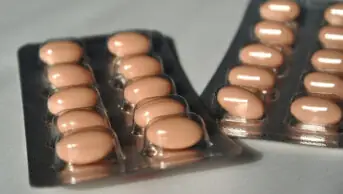
Shutterstock.com
Modafinil, approved for narcolepsy and other wakefulness disorders, could be the first safe pharmaceutical nootropic agent or ‘smart drug’, according to a review published in European Neuropsychopharmacology
[1]
on 20 August 2015.
Available in the United States and Europe as a treatment for narcolepsy, modafinil has another off-label use, particularly among students, who use it to improve concentration, especially around exam time.
To understand more about its use as a smart drug, researchers from the University of Oxford and Harvard Medical School in Boston, Massachusetts, reviewed studies published between 1990 and 2014 that looked at the cognitive effects of modafinil in people who were not sleep-deprived.
The review found that modafinil improved attention, learning and memory, and the benefit increased with the complexity of the task. There was little impact on creativity or mood. The researchers also observed that side effects were minor, such as headache and nausea, and were also seen in placebo groups.
“These so-called neuroenhancers could enable people to be more alert, vigilant and focused,” says neuroscientist and neuroethicist James Giordano, chief of the Neuroethics Studies Program at Georgetown University Medical Center in Washington who was not involved in the review. “That could help people to acquire information more quickly, and perhaps retain it somewhat better at certain tasks, but these drugs won’t necessarily make people smarter per se.”
While the results seem to be good news for students, discussion around the ethics of the use of modafinil as a smart drug will continue as new neuroenhancers are developed.
“There may be a perception that students who use modafinil have an unfair advantage over others, but there will always be the ‘haves’ and ‘have nots’ in education, which reflects a variety of factors – from opportunities afforded to students who receive scholarships and do not have to work, to what school one might attend. Simply put, life is not fair,” says Giordano.
Gaining regulatory approval for smart drugs is likely to be challenging. While regulation would provide some degree of control over prescribing and give doctors evidence to support prescribing decisions, there would need to be further studies to examine issues such as short-term and long-term effects, who should and shouldn’t take the drug, variability between individuals, and what happens at the end of the treatment period. And, according to Giordano, any thoughts of using the drug in children will make both ethics and regulation a lot more complex.
“When looking into using modafinil as a therapeutic tool in children with cognitive deficits, or even as a booster for cognitively normal children, it becomes even more important to account for mechanisms, effects and safety – in both the short-term and long-term,” he says.
“We would need to consider the ethics of carrying out long-term prospective studies in children whose brains are still developing, and balance the potential benefits on children’s ability to learn and their long-term outcomes with the unknown effects on their developing brains.”
References
[1] Battleday RM & Brem A-K. Modafinil for cognitive neuroenhancement in healthy non-sleep-deprived subjects: a systematic review. European Neuropsychopharmacology 2015. doi:http://dx.doi.org/10.1016/j.euroneuro.2015.07.028.
You may also be interested in

RPS awards 2014 in pictures
